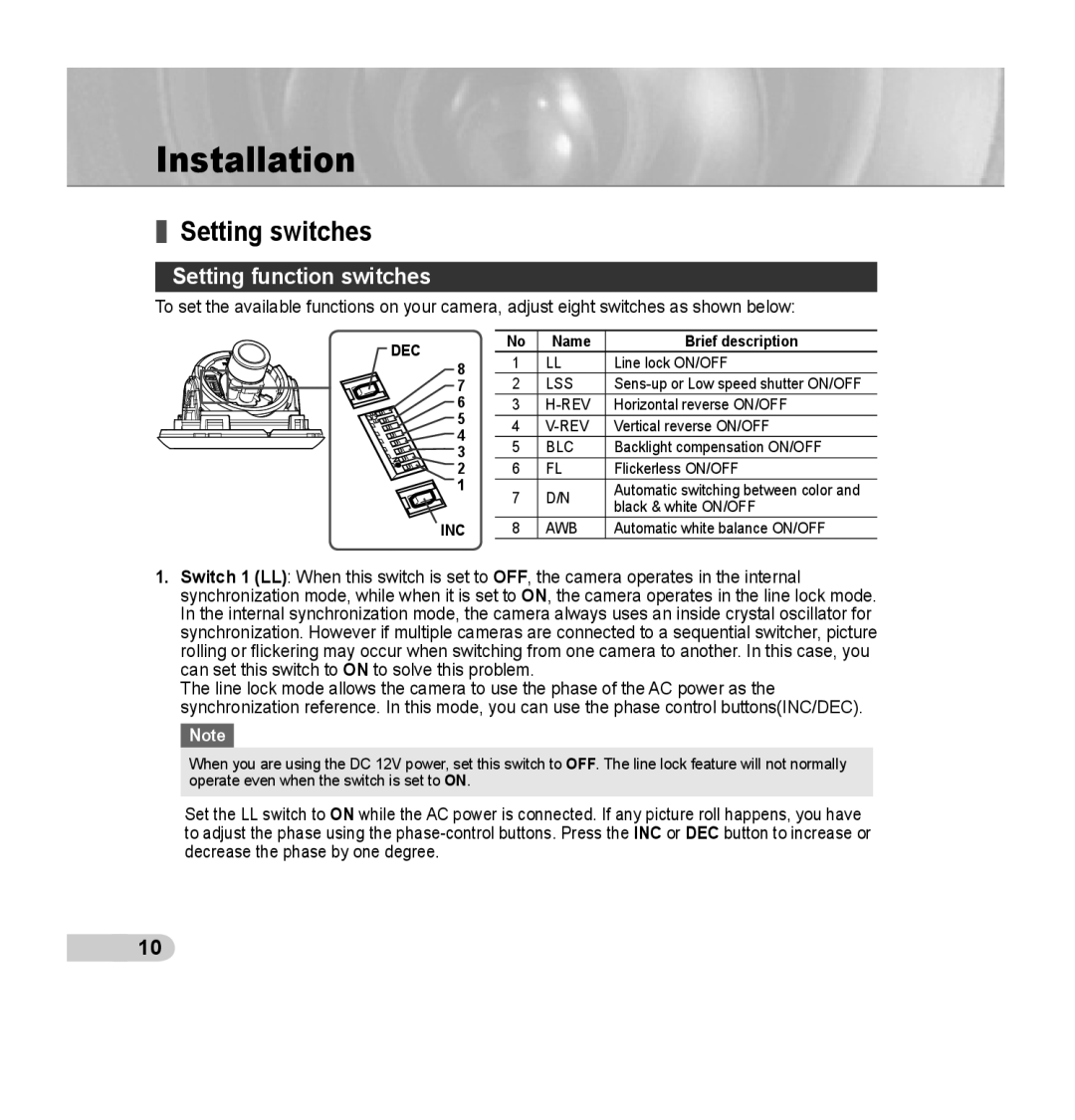
Installation
❚Setting switches
Setting function switches
To set the available functions on your camera, adjust eight switches as shown below:
DEC | No | Name | Brief description | |
1 | LL | Line lock ON/OFF | ||
8 | ||||
7 | 2 | LSS | ||
6 | 3 | Horizontal reverse ON/OFF | ||
5 | 4 | Vertical reverse ON/OFF | ||
4 | ||||
5 | BLC | Backlight compensation ON/OFF | ||
3 | ||||
2 | 6 | FL | Flickerless ON/OFF | |
1 | 7 | D/N | Automatic switching between color and | |
| black & white ON/OFF | |||
|
|
| ||
INC | 8 | AWB | Automatic white balance ON/OFF |
1.Switch 1 (LL): When this switch is set to OFF, the camera operates in the internal synchronization mode, while when it is set to ON, the camera operates in the line lock mode. In the internal synchronization mode, the camera always uses an inside crystal oscillator for synchronization. However if multiple cameras are connected to a sequential switcher, picture rolling or flickering may occur when switching from one camera to another. In this case, you can set this switch to ON to solve this problem.
The line lock mode allows the camera to use the phase of the AC power as the synchronization reference. In this mode, you can use the phase control buttons(INC/DEC).
Note
When you are using the DC 12V power, set this switch to OFF. The line lock feature will not normally operate even when the switch is set to ON.
Set the LL switch to ON while the AC power is connected. If any picture roll happens, you have to adjust the phase using the
![]() 10
10
